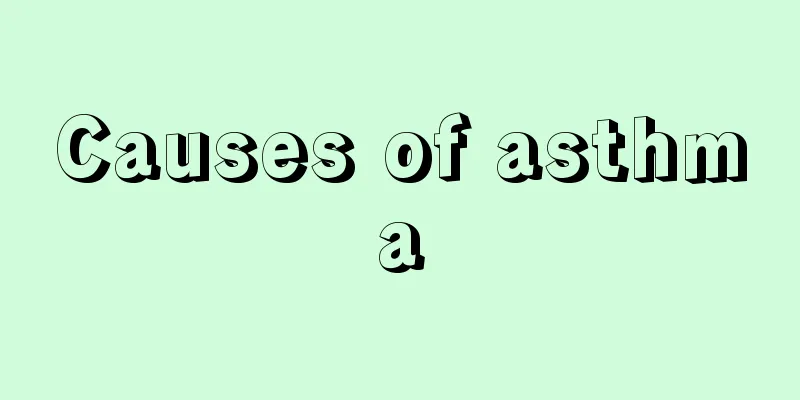What are the good methods of TCM to treat lung cancer? TCM's method of treating lung cancer through syndrome differentiation

|
The treatment of lung cancer by traditional Chinese medicine was recorded in some prescription books as early as the Song Dynasty. Common prescriptions and medicines for lung cancer include treatment of shortness of breath, cough, shortness of breath and painful cough, cough with blood, chest tightness, vomiting and sputum, yellow face and thin body, etc. The clinical experience of traditional Chinese medicine in the etiology, pathogenesis and syndrome differentiation treatment of lung cancer is summarized as follows. 1. Phlegm accumulation is the pathological basis of lung cancer Whether it is internal deficiency of vital energy, visceral disorders, or invasion of the lungs by external pathogens, or excessive cold and heat, the pathological process is that the lung qi is stagnant and accumulates into phlegm. The visceral pathogenesis of lung cancer is closely related to the lung and spleen, and phlegm accumulation runs through the entire course of lung cancer from primary to metastasis. 2. Treatment based on syndrome differentiation According to the pathological mechanism of lung cancer and the characteristics of TCM syndrome differentiation, lung cancer can be roughly divided into four common clinical syndromes: lung depression and phlegm heat, qi deficiency and phlegm dampness, yin deficiency and phlegm heat, and qi and yin deficiency. Lung stagnation and phlegm-heat syndrome is characterized by unsmooth cough, blood in phlegm, chest and flank pain or chest tightness and shortness of breath, dry lips and dry mouth, constipation, red or dark red tongue, yellow fur, and stringy or stringy pulse. This syndrome is caused by lung qi stagnation, blood stasis and phlegm accumulation. Treatment should be to promote lung qi, resolve blood stasis and remove phlegm. The symptoms of Qi deficiency and phlegm dampness are cough with a lot of phlegm, chest tightness and shortness of breath, lack of breath and laziness to speak, poor appetite and weight loss, abdominal distension and loose stools. The tongue is pale or light red, with teeth marks on the edges, white and greasy tongue coating, and soft or slippery pulse. The syndrome is weak lung qi, the child's illness affects the mother, the spleen is not healthy, and phlegm dampness is blocked inside. The treatment should be to tonify qi and strengthen the spleen, remove phlegm and disperse the knot. The symptoms of Yin deficiency and phlegm-heat type are cough with little phlegm, or dry cough, dry throat, or sputum with blood, chest fullness and shortness of breath, hot flashes and night sweats, dizziness and tinnitus, upset and dry mouth, yellow urine, and dry stool. The tongue is red, the tongue coating is peeled or the tongue is light and without coating, and the pulse is stringy and weak. This syndrome is lung and kidney yin deficiency, phlegm and heat, and the treatment should be to nourish the kidney and clear the lung, remove phlegm and clear heat. The prescription is Xiebai San with added flavor. The symptoms of Qi and Yin deficiency are dry cough with little sputum, low cough, or little sputum with blood, weight loss, fatigue, dry mouth and shortness of breath, insomnia, irritability and palpitations, poor appetite and fatigue, red and dry or tender red tongue, white and dry tongue coating or no coating, and deep and thin pulse. The syndrome is lung and spleen deficiency and kidney yin depletion. The treatment should be to replenish qi and nourish yin, strengthen the body and eliminate accumulation. The prescription is Shengmai San combined with Liuwei Dihuang Tang with modifications. Lung cancer patients often have symptoms of hemoptysis and sputum. To stop bleeding, do not use too much warm and dry medicine. Instead, add moistening and blood stasis removing products as appropriate. Because "lungs are delicate organs, they like moisture and hate dryness", and bleeding from lung cancer is not only caused by blood heat forcing blood to flow, but also often accompanied by blood stasis. Pay attention to stopping bleeding and do not leave blood stasis. In clinical practice, herbs such as Herba Agrimoniae, Asparagus cochinchinensis, and Panax notoginseng are often used to stop bleeding and remove blood stasis. |
Recommend
The latest method for treating cervical cancer
In recent years, cervical cancer has become one o...
How to deal with smelly pork
If the pork is smelly, we should throw it away di...
?A must-read after laryngeal cancer surgery! Tracheostomy care tips?
🔍Tracheostomy is an opening set up after laryngea...
Can I eat pickles when I have diarrhea
Some people with poor stomachs often suffer from ...
How to drink red wine better?
In fact, drinking red wine is now a symbol of tas...
Clinical methods for diagnosing prostate cancer
Prostate cancer is the most common malignant tumo...
How to treat hepatitis C? These methods are the most effective
Hepatitis C is caused by infection with the hepat...
Several common causes of colorectal cancer
Intestinal cancer is a type of cancer. Knowing th...
What are the signs of labor at 36 weeks of pregnancy?
When pregnant women are approaching their due dat...
How many teeth does a normal person have
Children usually grow deciduous teeth about 6 mon...
What should I do if I have a stomach flu and fever?
When the stomach and intestines have a cold and f...
What methods are used to treat pituitary tumors
The pituitary gland is an important organ that se...
How to use Sanfutie
The treatment of Sanfutie is not that simple. It ...
What are the prevention methods for bladder cancer?
Bladder cancer is a tumor disease. This disease s...
How to remove blood stains from clothes
It is very likely that blood will get on clothes,...









